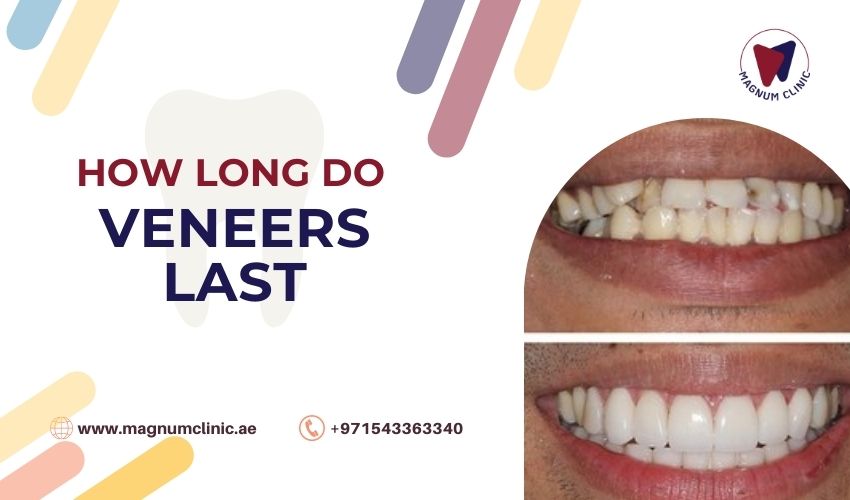How Long Do Veneers Last and When Do They Need Replacement?

Veneers have gained immense popularity in cosmetic dentistry, allowing individuals to enhance their smiles and boost their self-confidence. These Veneers are thin, customized shells made of Porcelain or Composite resin designed to cover the front surface of teeth, effectively improving their appearance. While Veneers provide long-lasting results, it’s important to understand the dental veneers lifespan and when to replace veneers.
In this article, let's explore all about Veneers including veneers durability, how long do veneers last, veneer maintenance and when veneers might require replacement.
Lifespan of Veneers
Veneers are known for their durability and can last for a significant period of time with proper care. On average, Porcelain Veneers have a lifespan of 10 to 15 years, while composite resin veneers tend to last between 5 and 7 years. However, it’s important to note that these estimations are not definitive, and individual experiences may vary. Several factors can affect the veneer longevity including oral hygiene, diet and lifestyle.
Read More: Benefits Of Veneers
Factors that influence Veneer longevity
There are many factors that help improve the Veneer longevity like,
- Oral hygiene: maintaining a strict oral hygiene routine is crucial in reserving the lifespan of veneers. Regular brushing, flossing and rinsing with antibacterial mouthwash helps improve veneer longevity
- Diet and lifestyle: certain dietary habits and lifestyle choices can impact the longevity of veneers. Avoiding excessive consumption of staining substances like coffee, tea, wine, and tobacco can help prevent discoloration.
- Teeth grinding or Bruxism: Individuals who suffer from Bruxism, a condition characterized by teeth grinding or clenching, may experience accelerated veneer wear and tear
- Accidental trauma: although veneers are durable, they can still be subject to damage from accidental trauma, such as a fall or a blow to the face. It is important to exercise caution during physical activities to minimize the risk of veneer damage
Signs That Veneers Need Replacement
Overtime, veneers may require replacement due to normal veneer wear and tear or other dental issues. Here are some signs that indicate the need for veneer replacement.
- Veneer discoloration: Veneers made of composite resin may become stained or discolored over time, impacting their appearance. While porcelain veneers are generally more resistant to staining, they may still exhibit some discoloration.
- Veneer chipping or veneer cracking: Veneers can chip or crack due to accidental trauma or biting on hard objects. If the damage is significant, it may compromise the aesthetics and may require replacement
- Tooth decay or gum disease: Veneers themselves are impervious to decay; however, the underlying tooth structure can still be affected. If the decay develops around the edges of the veneer, replacement may be required
- Changes in Bite Alignment: Changes in the bite can place excessive force on Veneers, leading to wear, fractures, or a misaligned bite. This is one of the reason for veneer replacement
Conclusion
Veneers can provide a beautiful and confident smile for many years, but their lifespan and the need for veneer replacement can depend on various factors. With proper oral hygiene, regular dental check-ups, and responsible habits, the veneer lifespan can be prolonged.
Visit Magnum Clinic to learn more and take the first step towards achieving the smile you've always wanted. Contact us today!
FAQs (Frequently Asked Questions)
How can I know if I need to repair my veneers?
Discoloration, chipping or cracking of the veneers, tooth decay or gum disease near the veneers, and major changes in bite alignment are all indications that the veneers need to be replaced. It is crucial to speak with your doctor for a thorough evaluation if you detect any of these symptoms.
How can I extend the lifespan of my veneers?
Practice good oral hygiene habits, use a non-abrasive toothpaste, and use antimicrobial mouthwash to prolong the life of your veneer. Avoid bad habits like chewing on hard food and biting your nails. If you have a propensity of grinding your teeth or bruxism, wearing a nightguard can safeguard your veneers.
